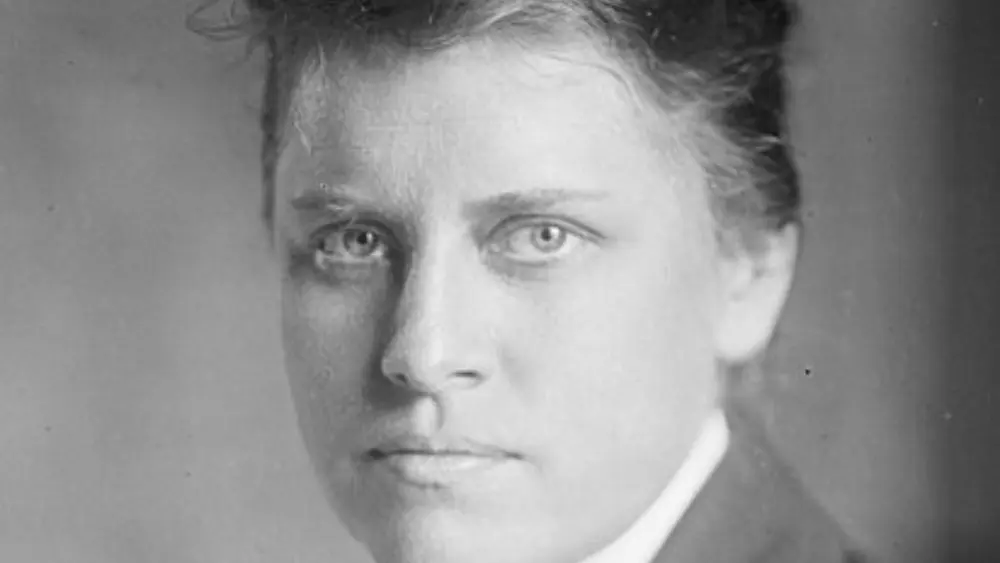Julia C. Stimson, born on May 26, 1881, in White Plains, New York, was a pioneering American nurse who made significant contributions to the field of nursing during World War I. Her dedication to patient care, leadership in the U.S. Army Nurse Corps, and advocacy for women in the military marked her as a trailblazer in the nursing profession and a key figure in wartime healthcare.
Early Life and Education
Julia Stimson’s early life was characterized by a profound sense of service and an innate compassion that would shape her extraordinary journey in the field of nursing. Born in the late 19th century, she hailed from a background that instilled in her the values of duty and empathy. This foundation laid the groundwork for a life dedicated to caring for others. Her upbringing fostered a deep commitment to making a positive impact on the world, particularly in the realm of healthcare.
Following her formative years, Julia pursued her nursing education at the prestigious Roosevelt Hospital Training School for Nurses in the bustling heart of New York City. It was here that she honed her skills, gained invaluable knowledge, and solidified her passion for nursing. The training she received equipped her with the expertise needed to provide exceptional care to patients, and it also instilled in her a strong sense of professionalism and leadership. Little did she know that her education at Roosevelt Hospital would be the stepping stone to a remarkable career that would propel her to the forefront of American nursing, leaving an unforgettable impact on the field and the lives of countless individuals she would touch through her work.
As she ventured into her professional journey, Julia Stimson’s commitment to nursing became increasingly evident. Her early years of service were marked by dedication and an unwavering sense of duty. Julia’s career was not just about earning a living; it was a true calling that allowed her to express her compassion for humanity. Through her exemplary contributions to nursing, she demonstrated that her education at Roosevelt Hospital was merely the beginning of a lifelong commitment to improving healthcare in America, leaving an enduring legacy that would inspire future generations of nurses and healthcare professionals.
Julia C. Stimson: Leadership in Nursing
Julia Stimson’s remarkable journey in nursing leadership is a testament to her unwavering dedication and exceptional abilities. With steadfast determination and a commitment to excellence, she ascended the ranks of the nursing profession with remarkable speed and grace. Her career trajectory was nothing short of inspirational, as she demonstrated her exceptional leadership skills at every turn.
One of the pivotal moments in Stimson’s career was her appointment as the superintendent of nurses at Presbyterian Hospital in New York City. In this role, she demonstrated her ability to manage and lead a team of nurses, ensuring that patient care was of the highest quality. Her impact extended beyond the hospital walls when she took on the role of director of the Army School of Nursing during World War I. During a time of immense demand for skilled healthcare professionals, Stimson’s leadership was indispensable. She played a pivotal role in training and preparing nurses to care for wounded soldiers, contributing significantly to the war effort. Julia Stimson’s exemplary leadership in nursing not only transformed healthcare institutions but also left a lasting impact on the profession, serving as an enduring source of inspiration for aspiring nurse leaders.
World War I and the Army Nurse Corps
Julia C. Stimson’s remarkable journey during World War I epitomizes the unwavering dedication and resilience of women who served on the frontlines of conflict. As the United States joined the global turmoil in 1917, Julia eagerly embraced the opportunity to make a difference. Her decision to enlist in the Army Nurse Corps reflected not only her commitment to her profession but also her deep sense of patriotism. In the midst of the chaos and suffering of war, she saw a chance to provide compassionate care to wounded soldiers, a role she was willing to undertake with unshakable resolve.
Julia’s exceptional leadership qualities quickly became apparent as she navigated the challenging and demanding environment of war. Her dedication and competence were so impressive that she was appointed as the chief nurse of the American Expeditionary Forces in France. This appointment was not only a testament to her abilities but also a groundbreaking moment in history, as it marked one of the highest-ranking positions held by a woman in the military at that time. Through her leadership, Julia Stimson not only improved the healthcare provided to American soldiers but also shattered gender barriers, paving the way for future generations of women in the armed forces. Her legacy serves as a reminder of the invaluable contributions made by women like her during times of crisis and conflict, highlighting their role in shaping the history of the United States and the world.
Julia C. Stimson: Nursing on the Frontlines
Nursing on the frontlines of World War I was a gruelling and demanding endeavor, Julia Stimson’s unwavering commitment to patient care stands as a testament to her resilience and compassion. Serving during chaos and conflict in France, Julia worked tirelessly in field hospitals and combat zones, where the conditions were often arduous and perilous. Her dedication to the well-being of wounded soldiers was unwavering, and she spared no effort in providing them with the care and comfort they desperately needed.
Julia’s exceptional leadership qualities and her willingness to confront the most challenging situations earned her the respect and admiration of both her colleagues and superiors. Her remarkable contributions on the frontlines not only improved the quality of healthcare for American soldiers but also demonstrated the pivotal role that nurses played during wartime. Julia Stimson’s legacy continues to inspire healthcare professionals today, serving as a poignant reminder of the vital role they play in times of crisis and conflict and the profound impact they can have on the lives of those they serve.
Advocacy for Women in the Military
Julia Stimson’s position as the chief nurse of the American Expeditionary Forces in France during World War I provided her with a unique platform to champion the rights and recognition of women in the military. Recognizing the injustices faced by nurses, she became a tireless advocate for gender equality in the armed forces. Stimson’s advocacy efforts extended to critical issues such as equal pay, rank, and recognition for nurses. Through her determined advocacy, she initiated a transformative shift in the military’s treatment of women, ultimately paving the way for significant and lasting changes in the status of women in uniform.
Julia Stimson’s pioneering spirit and unwavering commitment to equality continue to serve as a source of inspiration for women in the military and beyond. Her legacy underscores the importance of individuals who use their positions of influence to challenge systemic inequalities and advocate for positive change. Her contributions not only elevated the status of women in the armed forces during her time but also laid the foundation for progress that would benefit generations of servicewomen to come.

Julia C. Stimson: Post-War Career and Legacy
Following her significant contributions during World War I, Julia C. Stimson’s commitment to healthcare and nursing education remained steadfast in the post-war period. Her enduring dedication to the nursing profession and the well-being of veterans left a lasting impact on the healthcare landscape in the United States. In the years that followed the Great War, Julia leveraged her experience and expertise to advocate for the advancement of nursing as a respected and vital field within the healthcare system.
Julia Stimson’s legacy extends far beyond her wartime service. Her tireless efforts in post-war healthcare and education not only improved the quality of care for patients but also helped shape the future of healthcare in the United States. Her advocacy, particularly in support of veterans, underscored the importance of compassionate and dedicated healthcare professionals in providing essential services to those who had sacrificed for their country. Julia’s enduring legacy continues to inspire healthcare professionals and educators, emphasizing the profound impact that individuals like her can have on the betterment of healthcare systems and the well-being of the nation’s citizens.




